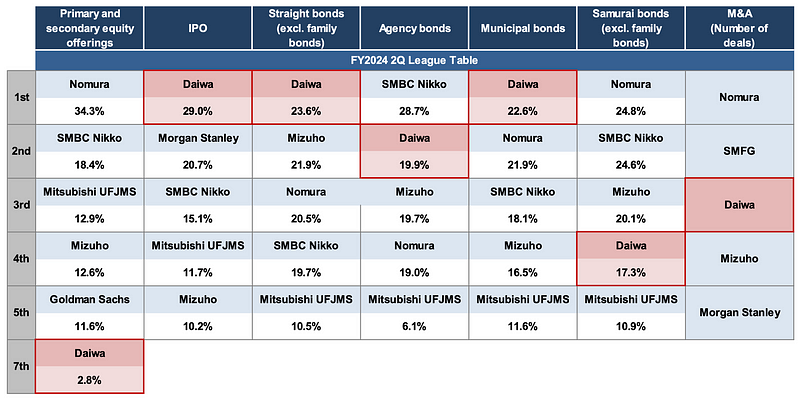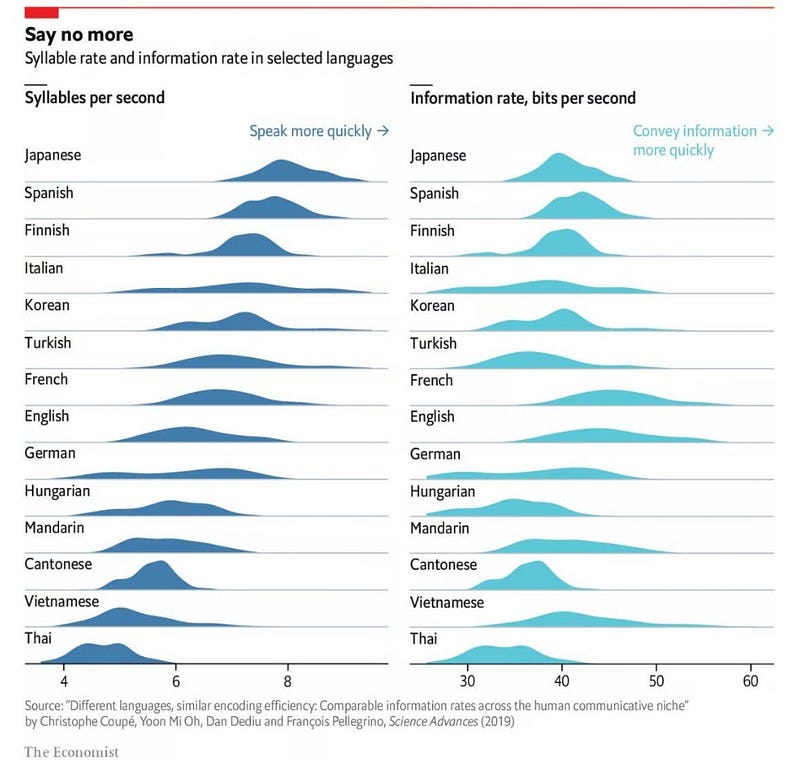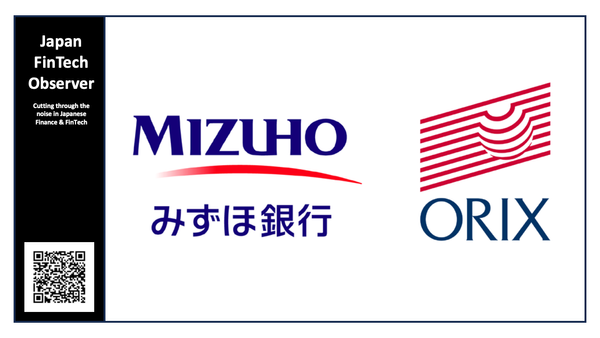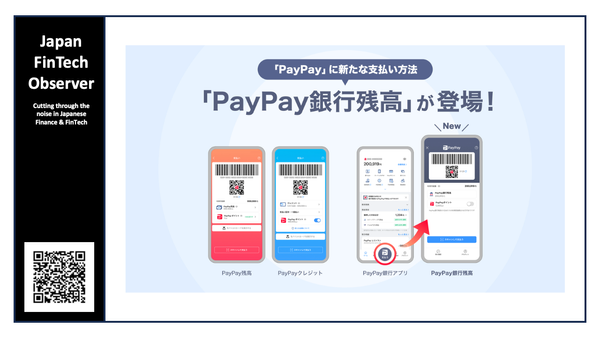Japan FinTech Observer #84
Welcome to the eighty-fourth edition of the Japan FinTech Observer.

Welcome to the eighty-fourth edition of the Japan FinTech Observer.
Last week the Hong Kong FinTech Festival took place, as well as the Future Investment Initiative (FII) event in Riyadh. In a sign of the times, the biggest deal flow from a Japanese perspective came from the latter. The Public Investment Fund (PIF) of the Kingdom of Saudi Arabia announced the signing of five memorandums of understanding worth up to USD 51 billion with leading Japanese financial institutions, namely Mizuho Bank, Sumitomo Mitsui Financial Group, MUFG Bank, Japan Bank for International Cooperation (JBIC), and Nippon Export and Investment Insurance (NEXI). In addition, SBI Holdings partnered for a venture capital fund, and also launched the first Saudi-Arabia ETF on the Tokyo Stock Exchange.
Domestically, the issuance of 100m “My Number Cards” since its launch in 2016 marks a major milestone, with the cards and its authentication app developed by the Digital Agency expected to become a key enabler across industries.
In a world that increasingly talks about alternative data for credit decisioning (the charging status of your mobile phone is my personal favorite), we will actually see the launch of a Japanese credit score, ranging from 200 to 800.
There also was some FinTech M&A activity, with PayPay taking over Credit Engine, and we received confirmation that au Pay and Rakuten Pay are both racing to become eligible for digital salary payments.
Elsewhere, the Bank of Japan — as predicted by our panel of experts — stood pat, leaving the policy rate unchanged, and the formation of a new government is still a work in progress.
Here is what we are going to cover this week:
- Venture Capital & Private Markets: Saudi Arabia-based venture studio firm BIM Ventures and SBI Holding announced the establishment of BIM Capital; Z Venture Capital invested an undisclosed amount in Indonesia’s Finfra
- Insurance: the Japan Fair Trade Commission (JFTC) issued a cease and desist order and a surcharge payment order against Mitsui Sumitomo Insurance, Sompo Japan Insurance, Aioi Nissay Dowa Insurance, Tokio Marine & Nichido Fire Insurance (non-life insurance companies), and Kyōritsu (non-life insurance agent) based on the provisions of the Antimonopoly Act
- Banking: SBI Sumishin Net Bank has developed an in-house generative AI chatbot for customers; CIC Corporation, which is the credit information agency designated under the Installment Sales Act and the Money Lending Business Act, will begin offering a credit score; Digital Garage has launched “Musubell”, a next-generation real estate engagement platform
- Payments: PayPay Corporation is acquiring Credit Engine Group, a provider of online loan management systems; BIPROGY will enter the digital salary domain through its “doreca” business that provides full outsourcing of operations necessary for digital money payments
- Capital Markets: Daiwa Securities, MUFG Securities, and Nomura all reported strong second quarter earnings; the Japan Research Institute (JRI) and Sumitomo Mitsui Banking Corporation (SMBC) have jointly developed a simulation service for predicting long-term electricity market prices
- Digital Assets: Progmat, in collaboration with NTT DATA and SBI R3 Japan, has launched both the SaaS version of “Progmat,” a digital asset issuance and management platform; Sota Watanabe, CEO of Startale and Director of Soneium, presented Soneium at Chainlink’s SmartCon, held alongside Hong Kong FinTech Week
- The Last Word: A Perspective on Languages
Venture Capital & Private Markets
- Saudi Arabia-based venture studio firm BIM Ventures and SBI Holding announced the establishment of BIM Capital, a joint venture designed to contribute to growth opportunities across Saudi Arabia and the broader Middle East; BIM Capital will focus on a diverse range of investments, including private equity, venture capital, debt funds, and real estate development funds, positioning itself as a key player in the region’s financial and investment landscape; BIM Capital aims to attract over $200 million (SAR750 million) in foreign direct investment (FDI) and targets total assets under management (AUM) exceeding $2 billion (SAR7.5 billion)
- Z Venture Capital invested an undisclosed amount in Indonesia’s Finfra, a provider of a Lending as a Service (LaaS) platform that enables non-financial businesses to offer credit services to their MSME customers, leveraging existing transaction data; by partnering with these platforms, Finfra can leverage their internal data to better understand borrower profiles and unlock new lending opportunities for both the platforms and borrowers
- Reflexivity (previously Toggle AI), which announced its strategic partnership with QUICK Corp, a Japanese financial information provider in the Nikkei Group about a month ago, raised a USD 30m Series B round led by Greycroft and Interactive Brokers; additional participation included renowned hedge fund fund managers, Stanley Druckenmiller and Greg Coffey, as well as General Catalyst and SoftBank LatAm; Reflexivity’s Japan entity is a resident of Finolab, the FinTech Center of Tokyo
Authentication
In July, Sumitomo Mitsui Card became one of the first companies to introduce personal identification using the public personal authentication service of “My Number Cards” in the V Point Pay app.
The public personal authentication service uses the electronic certificate stored in the IC chip of the My Number card to prevent fraud such as forgery of identification documents, impersonation by others, and data tampering, thereby realizing safe and reliable personal identification. With the introduction of this function, in addition to eliminating the need to take a facial photograph for identification, some application content such as name and address will not need to be entered, making the procedure smoother.
- This week, it was reported that the cumulative number of issued cards finally reached 100 million since its launch in January 2016.
- Furthermore, the utilization registration rate (valid registration rate) as a health insurance card reached 80% of the number of cards held, meaning many people can already use it as their health insurance card.
- This increased utilization is expected to streamline medical examination and dispensing operations, benefiting the medical, pharmaceutical, insurance, and healthcare industries.
- Furthermore, the introduction of the “Digital Authentication App” on smartphones will enable simplified authentication, further streamlining administrative procedures.
- These initiatives will form an essential foundation for providing sustainable administrative services, contributing to improved living conditions and well-being.
Insurance
- The Japan Fair Trade Commission (JFTC) issued a cease and desist order and a surcharge payment order against Mitsui Sumitomo Insurance, Sompo Japan Insurance, Aioi Nissay Dowa Insurance, Tokio Marine & Nichido Fire Insurance (non-life insurance companies), and Kyōritsu (non-life insurance agent) based on the provisions of the Antimonopoly Act; in addition, from the perspective of preventing violations of the Antimonopoly Act, the JFTC has compiled points to note regarding the Antimonopoly Act relating to co-insurance; furthermore, the JFTC made requests to the Financial Services Agency (FSA) and the General Insurance Association of Japan (GIAJ)
Banking

- SBI Sumishin Net Bank has developed an in-house generative AI chatbot for customers called “Helpippi™” and launched the service this week; “Helpippi™” is designed to allow customers to obtain the information they want by asking questions as if they were talking naturally to a cute character; unlike typical chatbots, it uses generative AI to understand language and retain context in natural language dialogue, enabling it to provide highly accurate answers
- CIC Corporation, which is the credit information agency designated under the Installment Sales Act and the Money Lending Business Act, will begin offering “Credit Guidance”, essentially a credit score with limited explanations, to member companies and consumers; in order to deepen consumers’ understanding of “Credit Guidance,” the company will begin offering it to consumers prior to offering it to member companies
- Digital Garage has launched “Musubell”, a next-generation real estate transaction DX engagement platform that allows for the creation and management of electronic documents for real estate transactions, as well as the online centralized management of status; Musubell for Brokerage, one of the services in the company’s lineup that specializes in real estate buying and selling brokerage, has partnered with House Do Housing Sales to make it available to over 700 House Do affiliated stores nationwide in spring 2025
Payments
- PayPay Corporation is acquiring Credit Engine Group, a provider of online loan management systems, effective November 1st, making Credit Engine a wholly owned subsidiary of PayPay; earlier this year, Credit Engine Group completed its Series B funding round, with total funding reaching approximately JPY 2.2bn, including debt financing; while specific acquisition terms and the future direction of existing services remain unknown, industry observers suggest several potential synergies between the companies; these could include streamlining loan screening processes for PayPay Bank’s various lending and installment payment services, enhancing bad debt risk management, developing Buy Now Pay Later (BNPL) services, and expanding offerings for small and medium-sized enterprises
- BIPROGY will enter the digital salary domain, which was deregulated in April 2023, through its “doreca” business that provides full outsourcing of operations necessary for digital money payments; the service has already been implemented in various areas such as insurance payments and business commission fees; BIPROGY will first support KDDI‘s “au PAY” and Rakuten‘s “Rakuten Pay”, and will start the service after both companies receive approval from the government; in August, PayPay became the first company designated by the Minister of Health, Labour and Welfare as a fund transfer business operator that handles digital wage payments to the accounts of fund transfer business operators
Capital Markets

- Daiwa Securities, MUFG Securities, and Nomura all reported strong second quarter earnings; Daiwa’s results presentation helpfully included above league tables for the first half of the current Japanese fiscal year (April to September)
- Mizuho Bank and Mizuho International have signed a memorandum of understanding (MoU) with the Public Investment Fund (PIF), the Saudi sovereign wealth fund, to work together to further advance capital market flows into Saudi Arabia; also, Sumitomo Mitsui Financial Group announced the signing of a Memorandum of Understanding (MOU) with the Public Investment Fund (PIF) with the aim to strengthen the partnership between the two groups
- Already a step ahead of the competition, SBI Global Asset Management actually launched its “SBI Saudi Arabia Equity Exchange Traded Fund”, established and managed by its subsidiary SBI Asset Management, through a listing on the Tokyo Stock Exchange (TSE)
- The Japan Research Institute (JRI) and Sumitomo Mitsui Banking Corporation (SMBC) have jointly developed a simulation service for predicting long-term electricity market prices, which will begin operation from November 2024; the Service combines JRI’s accumulated knowledge of the electricity market with SMBC’s data analysis skills, enabling a more detailed representation of the future electricity market, taking into account changes in the future energy mix and interconnection line constraints
Digital Assets
- Progmat, in collaboration with NTT DATA and SBI R3 Japan, has launched both the SaaS version of “Progmat,” a digital asset issuance and management platform, and implementation support services; with the introduction of “Progmat SaaS,” a wide range of financial institutions can easily begin digital asset-related businesses (registry management, custody services, etc.) without having to build blockchain or distributed ledger nodes on their own servers; additionally, a broad range of securities companies and intermediaries can manage investor private keys internally without outsourcing to third-party custodians; as a result, this expands options for businesses planning to issue Security Tokens (STs) and investors wanting to trade STs, which is expected to improve digital asset market efficiency and expand market scale
- Sota Watanabe, CEO of Startale and Director of Soneium, presented Soneium at Chainlink’s SmartCon, held alongside Hong Kong FinTech Week; Soneium is an Ethereum Layer-2 scaling solution developed by Sony Blockchain Solutions Labs, a joint venture between Sony Group and Startale; the core objective of Soneium, and Startale as a whole, is to onboard billions of people onto the blockchain, democratizing access to Web3 technology and unlocking its potential for humanity
The Last Word: A Perspective on Languages

The Economist published the above graph, contrasting the speed of speaking with the speed of information transmission. If you ever wondered why I cannot get a word in when talking to my Japanese wife, now you have the answer.
Please follow us to read more about Finance & FinTech in Japan, like hundreds of readers do every day. We invite you to also register for our short weekly digest, the “Japan FinTech Observer”, on Medium, on LinkedIn, or on Substack.
We also provide a daily short-form Japan FinTech Observer news podcast, available via its Podcast Page. Our global Finance & FinTech Podcast, “eXponential Finance” is available through its own LinkedIn newsletter, or via its Podcast Page.
Should you live in Tokyo, or just pass through, please also join our meetup. In any case, our YouTube channel and LinkedIn page are there for you as well.




